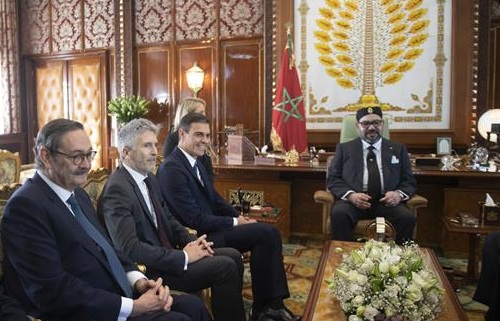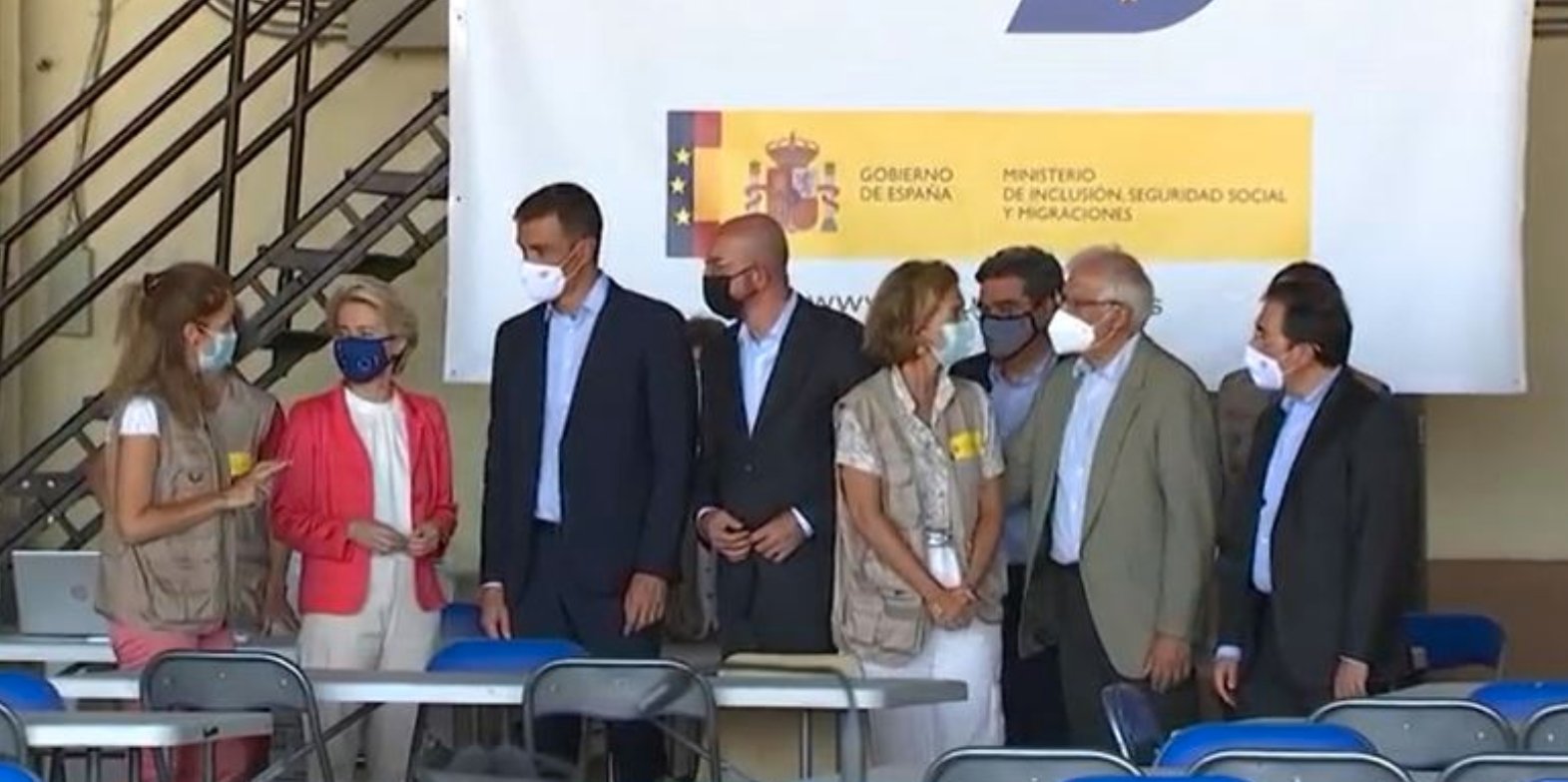The Diplomat
The Spanish government has welcomed the speech delivered on Friday by King Mohammed VI of Morocco in which he expressed his desire to open “a new and unprecedented stage” in relations with Spain, following the bilateral crisis that began last April.
Yesterday, the head of the Spanish government, Pedro Sánchez, thanked the King for his words at a press conference after visiting the Torrejón air base with the leaders of the European Union, Charles Michel and Úrsula von der Leyen. “Every crisis creates opportunities and this is a great opportunity to redefine these relations and the pillars on which they are based,” he said.
Sánchez added that “on trust, respect and present and future collaboration we can build a relationship on much more solid foundations than we have had until now”. And he stressed that Spain and Morocco are two countries that are “allies, neighbours and brothers”.
The crisis with Morocco began last April due to the hospitalisation in Spain of the leader of the Polisario Front, Brahim Gali, and the subsequent massive influx of emigrants in May to the Spanish autonomous city of Ceuta in the face of Moroccan passivity, among them 1,097 minors who are due to be repatriated, although for the moment a court has suspended the returns.
In his speech on Friday, Mohamed VI put an end to a diplomatic crisis unleashed after Spain welcomed Polisario Front leader Brahim Ghali to a hospital in Logroño for treatment for COVID-19, a decision to which Rabat responded by allowing an avalanche of migrants to Ceuta days later and calling for consultations with its ambassador in Madrid, Karima Benyaich.
The replacement at the head of the Foreign Ministry of Arancha González Laya, whom Morocco considered to be mainly responsible for the reception of Ghali, began to pave the way for reconciliation, and Morocco made some gestures towards Spain, including facilitating the implementation of the agreement for the return of unaccompanied minors.
On Friday, on the occasion of the traditional speech commemorating the Revolution of the King and the People, Mohammed VI said that this “new unprecedented stage” to which he referred is based on “trust, transparency, mutual consideration and respect for commitments”.
For their part, Ursula von der Leyen and Charles Michel also welcomed Mohammed VI’s words because “Morocco is a partner of the EU” with which it maintains “close cooperation”, so that “good relations with this country are as important for the EU as they are for Spain”. Sánchez thanked the EU executive for its support during what he called the “fateful days” of May, when the migration crisis with the neighbouring country broke out.
The Spanish government is now waiting for Morocco to start taking steps to make Mohammed VI’s words a reality. González Laya’s replacement as foreign minister, José Manuel Albares, has insisted since taking office that contacts with the Moroccan authorities should be made discreetly so that they can produce results.
In any case, there are some issues on the horizon that could reflect Morocco’s willingness to end the crisis, such as the return of the ambassador to Madrid, although diplomatic circles recall her harsh declarations when relations deteriorated.
Furthermore, a date has yet to be set for the High Level Meeting between Spain and Morocco, which should have been held some time ago, as well as the reopening of the land borders with Ceuta and Melilla, which were closed in March 2020, and the resumption of passenger traffic through the Strait of Gibraltar.







